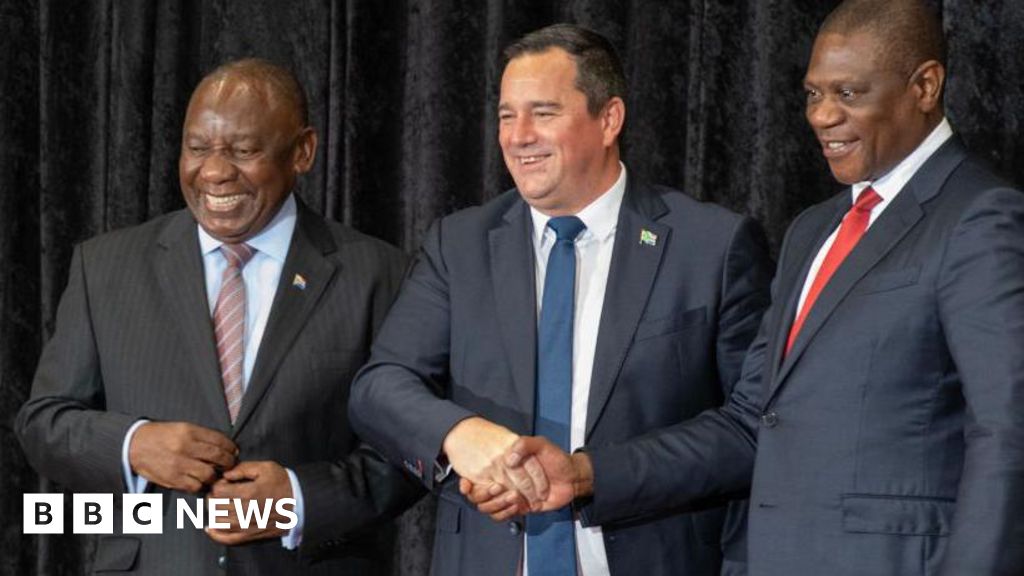Instability in South Africa’s Coalition Government
South Africa’s coalition government faces significant instability, as evident from the stark differences between its leading parties, the African National Congress (ANC) and the Democratic Alliance (DA), highlighted during an important national budget vote.
Budget Vote Division
The centre-right DA opposed the fiscal framework—a critical component of the budget—due to its objection to a proposed increase in VAT and its demand for budget cuts across all government departments.
Political Maneuvering by ANC
The ANC, portraying itself as a centre-left party, declined to accept what it termed the DA’s insistence on an “austerity budget.” In a display of political skill, the ANC secured backing from several smaller parties, ensuring the fiscal framework passed through parliament with a vote of 194 to 182.
DA’s Response and Future Considerations
The DA has initiated legal proceedings to contest the vote, claiming it was executed “procedurally flawed.” The party’s leadership is set to convene soon to decide whether to remain in the so-called government of national unity (GNU).
Coalition Dynamics and Tensions
Professor William Gumede from Wits University expressed uncertainty about the DA’s next move, questioning if this moment is pivotal enough for the DA to withdraw from the coalition or if they should wait for the court’s verdict. The coalition came into existence less than a year ago, after the ANC lost its parliamentary majority in elections for the first time since being led to power by Nelson Mandela in 1994.
Strategic Coalition Formed for Economic Stability
The business community had advocated for a coalition between the ANC and DA to ensure economic stability. However, DA spokesperson Willie Aucamp indicated that the party may reconsider its involvement after accusing the ANC of “serious infractions” and crossing unacceptable boundaries.
Opposition Unity Against VAT Increase
In this contentious vote, the DA found common ground with South Africa’s main opposition parties—the populist uMkhonto weSizwe (MK) and the Economic Freedom Fighters (EFF)—in their opposition to the VAT increase, arguing that it would disproportionately affect low-income citizens. Meanwhile, the ANC argued that an increase in VAT, projected to rise by 0.5% this year and next, was necessary to generate revenue to fund public services like health and education.



